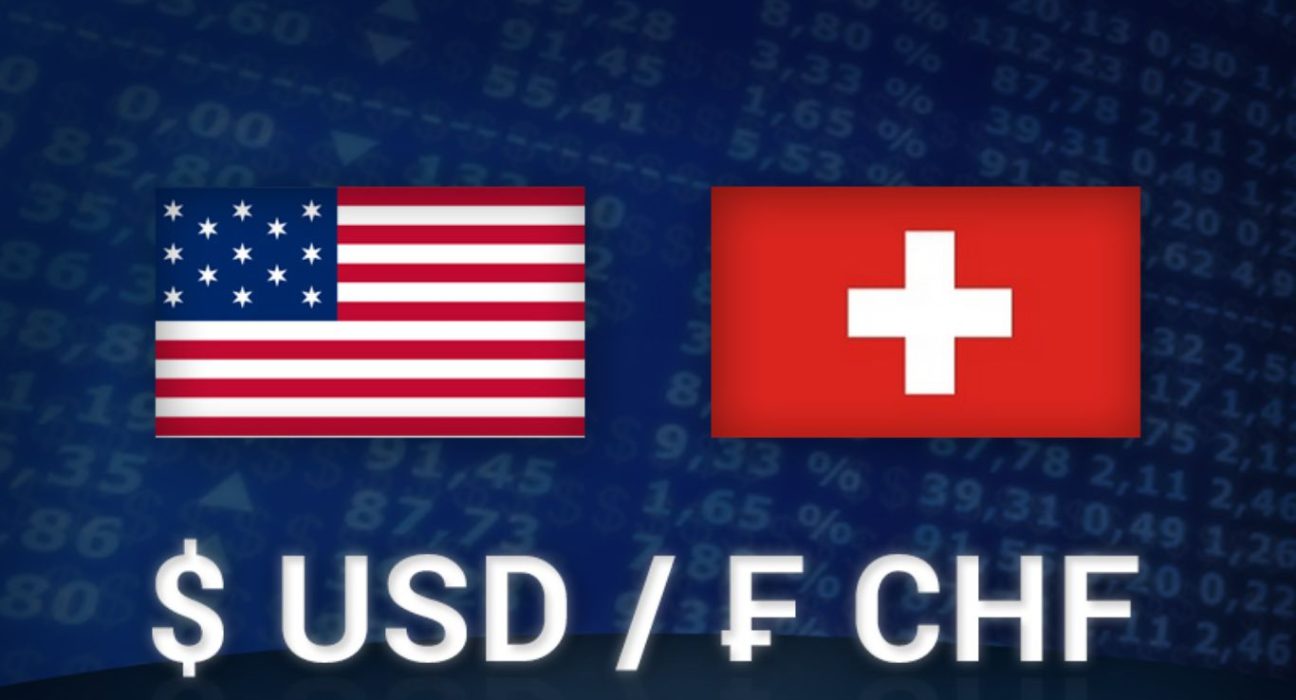Introduction
The USD/CHF currency pair, which represents the exchange rate between the US Dollar (USD) and the Swiss Franc (CHF), has recently witnessed a modest decline. Traders and investors are closely monitoring the fluctuations in this popular forex pair due to ongoing economic uncertainties. In this article, we will delve into the latest figures and analyze the factors contributing to the pair’s recent performance.
Current Exchange Rate Levels
As of the latest data, the USD/CHF exchange rate stands at 0.8692, with a slight increase to 0.8696 observed recently. This translates to a decrease of 0.02% compared to the previous rate, and a more significant decline of 5.98% when measured against the rate of 0.8736 seen earlier. Notably, the currency pair experienced a brief uptick, touching 0.8736, before sliding to 0.8662. This sharp fluctuation reflects the heightened volatility surrounding the pair.
Global Economic Uncertainty
The USD/CHF’s fluctuation can be attributed to various economic uncertainties prevailing worldwide. One significant factor contributing to the uncertainty is the ongoing trade tensions between the United States and China. These geopolitical uncertainties have been influencing the value of major currencies, including the US Dollar and the Swiss Franc, making traders cautious about their investments.
Central Bank Policies
Central banks play a pivotal role in shaping the performance of their respective currencies. The US Federal Reserve’s monetary policy decisions, such as interest rate changes and quantitative easing measures, significantly impact the value of the US Dollar. On the other hand, the Swiss National Bank’s interventions in the foreign exchange market influence the Swiss Franc’s strength. Any unexpected policy announcements from these central banks can lead to sharp movements in the USD/CHF pair.
Economic Indicators
Various economic indicators, such as GDP growth, inflation rates, and employment data, also impact the USD/CHF exchange rate. The economic recovery from the COVID-19 pandemic has been uneven across different countries, creating uncertainties in global markets. As economic data is released, traders assess the health of the US and Swiss economies, adjusting their positions accordingly, resulting in fluctuations in the currency pair.
Safe-Haven Demand
The Swiss Franc is often considered a safe-haven currency, attracting investors during times of global uncertainty. When geopolitical tensions rise, or financial markets experience turbulence, traders seek refuge in stable assets, driving up the value of the Swiss Franc. As a result, the USD/CHF pair may decline during such periods, reflecting the increased demand for CHF.
Impact of Inflation
Inflation is a key determinant of a currency’s value. The US and Swiss economies have experienced varied inflation rates, influencing their respective currencies. Higher inflation in the US can lead to a depreciation of the US Dollar, impacting the USD/CHF exchange rate negatively. Conversely, lower inflation in Switzerland can strengthen the Swiss Franc, affecting the currency pair positively.
Geopolitical Events
Geopolitical events can have a profound impact on the USD/CHF currency pair. Events such as political elections, referendums, and international conflicts can create uncertainty in financial markets, leading to significant movements in the exchange rate. Traders closely follow such events to make informed decisions and mitigate potential risks.
Technical Analysis
Technical analysis plays a vital role in understanding the short-term movements of currency pairs. Traders use various technical indicators and chart patterns to identify potential entry and exit points for their trades. This analysis can add further momentum to existing trends or potentially reverse them.
Conclusion
In conclusion, the USD/CHF currency pair has experienced a modest decline amid global economic uncertainties. Factors such as geopolitical tensions, central bank policies, economic indicators, safe-haven demand, inflation rates, and geopolitical events contribute to the pair’s fluctuations. Traders and investors are advised to closely monitor these factors to make informed decisions while navigating the ever-changing forex market. Remember, the forex market is inherently volatile, and it is crucial to conduct thorough research and seek professional advice before making any investment decisions.










